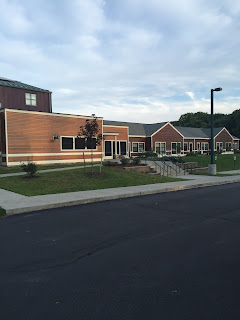I hope you have booked the sitter, because the Gala is now
only a week and a half away! The Gala is
a great night out, and a wonderful way to meet new friends and meet the parents
of your children’s friends. There is
great food and music and it is a great way to support our school. I highly encourage you to come!
Last week I traveled with the Middle School on a Civil
Rights tour to Atlanta, Selma, Montgomery, Birmingham and Memphis. We visited Dr. Martin Luther King’s home and
church, walked over the Edmund Pettus
Bridge, had a tour from one of the foot soldiers of the movement, ate barbeque
and soul food, toured the Southern Poverty Law Center Civil Rights Institute,
the Lorraine Motel and Civil Rights museum. We also went to Beale St. in Memphis, went to
the Rock and Soul Museum, followed by dinner at the Hard Rock Café located in
the clothing store where Elvis had his clothing made. It was very meaningful trip and helped our
students to reflect upon their role as advocates for justice and peace. Many who took action during the Civil Rights
movement were students. We were moved
emotionally by many of the stories we were told and read about.
The week prior I traveled to San Diego to attend one day of
the American Montessori Society national conference as well as the board
meeting. I attended an excellent
marketing workshop as well as an inspiring keynote: Sonya Manzano, or Maria
from Sesame Street. Unfortunately, the
second day of the board meeting was canceled due to the snowstorm in the East. My Monday flight was canceled too and I was ‘stuck’
there until Wednesday. I made the most
of it, going with a couple of other stranded board members to La Jolla and Old
Town.
We are always grateful to be able to participate in faculty
development. Not only do we learn sound
pedagogical practices, we also reflect upon and support our own teaching
methods. They also build our community
and team spirit. This past faculty
development day was with the Lyndon Cudlitz, a trainer from the Capital Region
PRIDE Center, who spoke about transgender students. He helped us learn the appropriate terms
regarding gender identity, sexual orientation and other terms related to identity. The lessons learned may be applied to all
students, not just transgender students.
For example, he said that sometimes the most hurtful experiences
children have are the ‘micro-aggressions”, or the nasty looks of disapproval that
children who are different might receive.
We can ask all of our children to think about this and how they are
treating others (and adults too).
Well I think that is enough for now. Thank you for all of your support of
WHMS.






